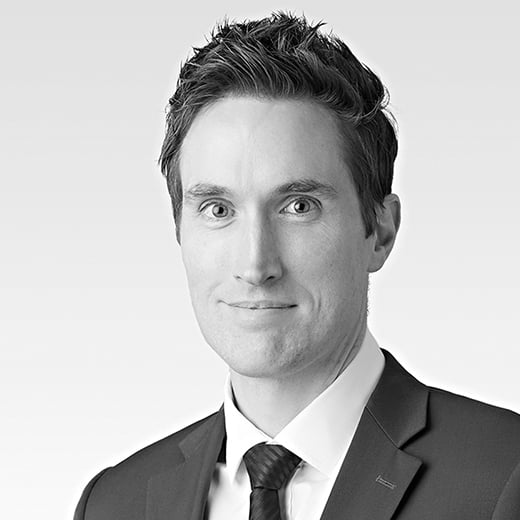About Alex
IFM’s chief economist Alex Joiner’s first career love was flying – the now economist made his first solo flight at just 16. “It’s a fantastic pastime but I didn’t know whether I could turn that into a career,” he says. Instead, he chose commerce at university before switching to economics, in which he added a doctorate.
After a rocky start in the discipline, Alex had a small epiphany and ended up taking an honours year where he met the first of his career-shaping mentors, renowned Australian economist Professor Mardi Dungey at LaTrobe University.
“She gave me enthusiasm through her own enthusiasm to do economics,” Alex says. “That was the first time I did well at economics. I remember distinctly it was a paper on NAIRU.”
The non-accelerating inflation rate of unemployment, which is not an observable phenomenon, continues to haunt economists of Alex's generation and the Reserve Bank, which acknowledges it may now be below 4 per cent but by its nature, nobody can be sure.
After a doctorate in economics, Alex deduced academia wasn’t for him, and following a stint in Treasury, he met his second mentor – veteran economist Saul Eslake – who Alex describes as “transformative in my career”. Like Dungey, Eslake also happened to be Tasmanian.
He joined Eslake at ANZ and then Bank of America before he was drawn to IFM Investors, where he is now the Chief Economist.
As Alex’s career evolved, so did monetary policy. “Inflation targeting was a late 1990s, early 2000 phenomenon and that has been the story of many economist careers,” he says. It is all based around trying to forecast what central banks are doing and what they will be doing in the future.
But lower interest rates and higher debt came with the dominance of monetary policy, and imbalances are now showing up in wealth inequality and surging house prices. Alex believes there’s now too much reliance on monetary policy and that’s curbing the economy’s growth potential.
Monetary policy was “always designed as a cyclical response to flatten out the cycle". "Monetary policy was never designed to fix structural issues in economies around productivity growth and tax reform,” he says.
“All these things that enhanced the productive capacity of the Australian economy,” he says. “Central banks were a big player, but not the dominant player. But that has changed over time.”
And now central bankers are out of effective policy measures, he says. “They only have limited tools.”
That means fiscal policy needs to step up with some ideas on how to grow the economy in a post-pandemic world.
“It is fiscal policy makers or politicians that now need to proactively drive the economic agenda.” Alex wants “better ideas and a better economy” and sees the COVID-19 pandemic as an opportunity for an economic reset.
In the past Australia has relied on high population growth and has a natural resources advantage “that always seems to come to our assistance”, but relying on those factors isn’t a sustainable way to manage the economy, he argues.
“We need to have a growth narrative that’s more inclusive. That allows people to progress. We need a situation where businesses can invest and productivity can improve and that allows people to bargain for higher wages and a better standard of living.”
Alex points out that there’s no shortage of productivity-enhancing ideas from the Productivity Commission. “The framework has been thought about. There’s nothing new about this, it’s just the challenge of trying to implement policies,” he says. “These things can be politically courageous.”
Fiscal courage doesn’t yet include budget repair by the government, which has been left with a vast debt pile from supporting the economy through the pandemic, he says.
The economy has recovered more strongly than any economist expected but it’s not yet at a point “where we can confidently pursue contractionary fiscal policy and have the outcome that we want”.
“I think that we will have contractionary fiscal policy before contractionary monetary policy, but I think it’s still going to be some way off.”
Source: https://www.afr.com/policy/economy/from-trainee-pilot-to-chief-economist-20210330-p57f49

Invest in what matters. Join us.
If you are interested in a career at IFM, we encourage you to view our open roles or join our talent community regarding future opportunities.
